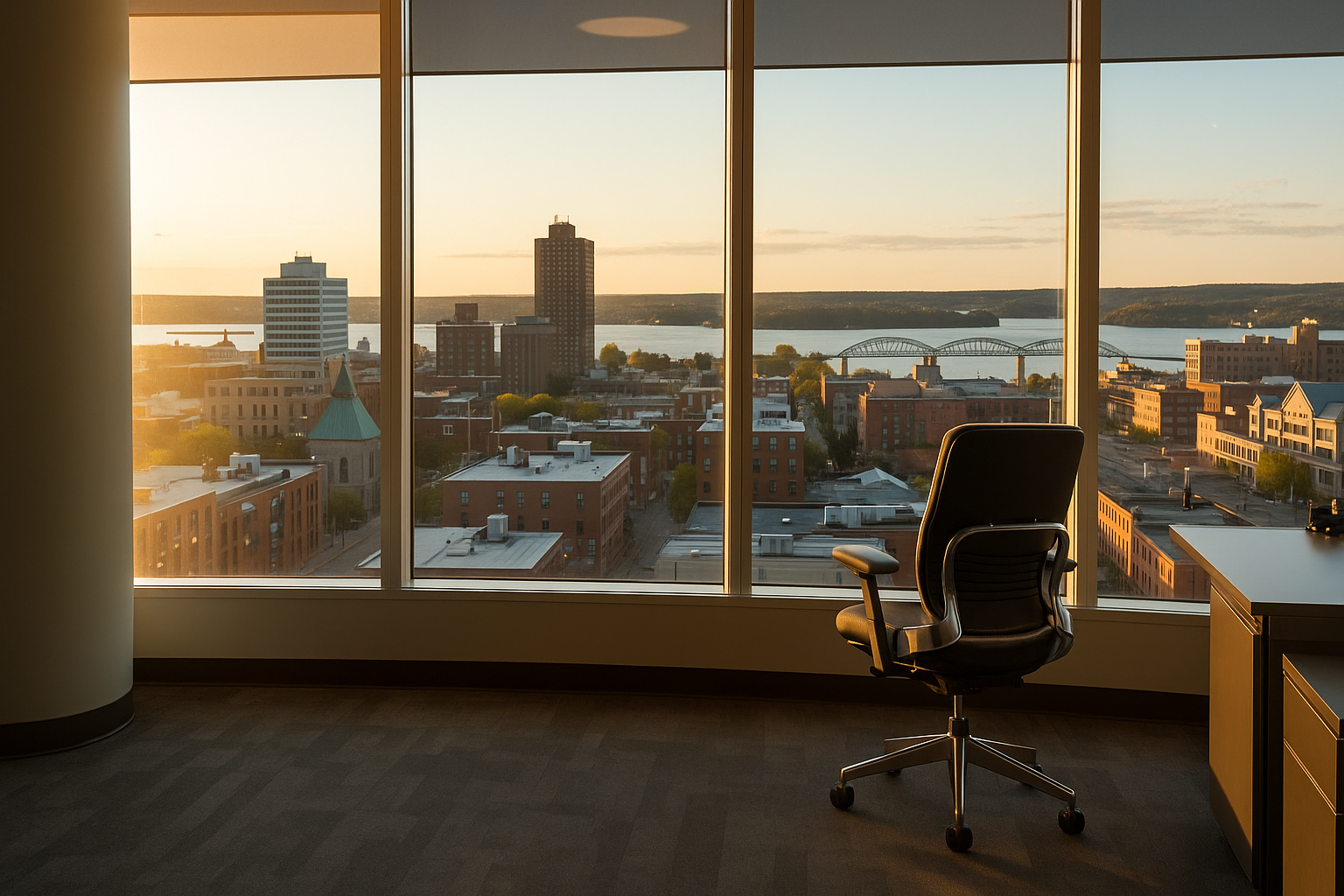Powered by Steelcase Research | Delivered by Atlantic Business Interiors
Inclusion isn’t just a policy, it’s a practice that begins with the spaces where people work. In the Atlantic Canada, from Halifax tech startups to Moncton law firms and St. John’s creative studios, companies are rethinking how they design their offices to support neuro-diverse employees. And with the right office furniture, informed by global insights and delivered locally, inclusion becomes not only achievable, but a competitive advantage.
Rethinking the role of Office Furniture
Neurodiversity encompasses a wide range of cognitive differences—autism, ADHD, dyslexia, and sensory sensitivities among them. While inclusive design has long focused on physical accessibility, there’s a growing recognition that true inclusion must also address cognitive and sensory experiences.
Steelcase’s Designing for Neurodiversity research highlights a key takeaway: the layout, acoustics, lighting, and especially the furniture we choose can profoundly shape how employees feel, focus, and perform. This is especially relevant for the Atlantic Canadian offices, where balancing open-plan layouts with the need for focused, flexible zones is a constant challenge.
What does this look like in practice? It starts with giving employees more control over their environment. Modular workstations, adjustable chairs, and flexible privacy options allow people to customize their space to suit their needs, boosting both comfort and autonomy. In fact, Steelcase found that 88% of highly engaged employees report having control over their workspace.
Comfort is critical too. Chairs like the Steelcase Gesture® and Leap® aren’t just ergonomic, they’re designed to support natural movement and reduce fatigue, which is especially important for neurodiversity individuals who may be more sensitive to physical discomfort. When discomfort is minimized, cognitive energy is freed for meaningful work.
And then there’s sound. Many neuro-diverse employees are especially sensitive to noise. High-back seating, enclosed pods, and acousic-friendly furniture can reduce auditory distractions and make shared workspaces more supportive and calm. According to Steelcase, thoughtful acoustic interventions can cut distractions by up to 50%.

Designing with purpose across the Atlantic Canada
Every Atlantic Canadian city has its own workplace character, and its own set of challenges. In Halifax, we see fast-growing tech firms embracing agile, reconfigurable benching systems to support dynamic teams. In Moncton, more traditional legal and corporate environments are turning to private, acoustically supported workstations that balance focus with comfort. Meanwhile, in St. John’s, creative studios are prioritizing lounge-based collaborative zones paired with writable surfaces and biophilic elements that spark ideation.
In each case, the common thread is intentionality. The right combination of furniture, layout, and materials doesn’t just meet functional needs, it nurtures a sense of belonging and purpose. Calming textures, soft finishes, natural lighting, and plant integration help reduce sensory overload while enhancing well-being.
Creating a neuro-inclusive workspace doesn’t require a massive overhaul. It starts with thoughtful decisions—about a desk, a chair, a layout—that are backed by research and delivered with care.
As the Atlantic Canada’s only authorized Steelcase dealer, we don’t just deliver furniture, we deliver tailored workspace solutions. Our team works alongside clients to evaluate floorplans, map acoustic needs, select ergonomic options, and ensure that every choice contributes to a more inclusive, productive environment.
Most importantly, we provide ongoing support—from reconfiguration services to employee onboarding—because a great workplace isn’t static. It evolves with your people.
Let’s build a more inclusive Atlantic Canada, one thoughtfully designed workspace at a time. 👉 Book a Free Workspace Consultation
